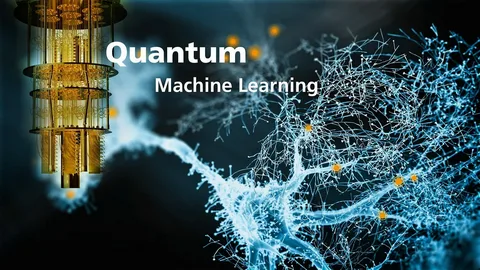The Role of Artificial Intelligence in Civil Engineering
The Role of artificial intelligence in civil engineering has transformed the way infrastructure is designed, constructed, and managed. From optimizing designs to predicting disasters, AI is riding innovation in one of the oldest and maximum crucial professions. Civil engineering projects, which had been once reliant on manual calculations and repetitive processes, are actually improved by means of the precision and performance of AI technology.
The influence of artificial intelligence (AI) extends past civil engineering and has had a vast impact on software engineering development as well. Just like AI automates techniques and optimizes designs in civil engineering, it additionally facilitates software builders create smarter programs with the aid of improving coding accuracy, automating checking out, and improving assignment management.

For example, AI-powered equipment in software program development can examine huge amounts of code to stumble on errors and suggest fixes, similar to how AI identifies structural flaws in civil engineering initiatives. This shared potential to method information and deliver precise results highlights how AI is revolutionizing industries, making them greater green and modern.
Here in this article we’ll explore the role of artificial intelligence in civil engineering, its advantages and disadvantages, and the way experts can leverage AI equipment, courses and assets for higher outcomes.
Understanding the Role of Artificial Intelligence in Civil Engineering
At its middle, artificial intelligence refers to the capability of machines to imitate human intelligence. In civil engineering, this indicates automating repetitive duties, optimizing complicated processes, and improving decision-making through machine learning, data analytics, and deep learning.
Consider a large-scale bridge construction project. Traditionally, engineers would rely on manual methods to analyze load capacities and material requirements. Today, AI tools automate these calculations, ensuring accuracy and saving valuable time.
Learn more about AI in civil engineering.
Importance of Artificial Intelligence in Civil Engineering
The importance of the role of artificial intelligence in civil engineering cannot be overstated. AI enhances each component of the field, from planning and layout to creation and renovation. Key benefits include:
- Smarter Design Processes: AI algorithms can analyze records from preceding projects to advocate optimized designs that balance fee, protection, and performance.
- Predictive Maintenance: AI systems monitor infrastructure fitness, detecting ability issues like cracks or material fatigue earlier than they turn out to be vital.
- Resource Optimization: By studying project requirements, AI ensures the efficient use of materials, time, and hard work.
Worlds most developed cities like Singapore and Dubai are top examples of ways AI-driven answers improve urban infrastructure, decreasing congestion and enhancing sustainability.
Advantages of Artificial Intelligence in Civil Engineering
The advantages of artificial intelligence in civil engineering have made it an essential device for experts:
1. Improved Efficiency
AI automates repetitive responsibilities, together with structural analysis and task management, permitting faster crowning glory of initiatives.
2. Enhanced Accuracy
AI-driven simulations eliminate human error in calculations and designs, resulting in safer and more precise outcomes.
3. Cost Savings
By optimizing resource allocation and minimizing delays, AI significantly reduces project costs.
4. Enhanced Safety
AI-powered tracking systems locate hazards on production websites, ensuring compliance with protection standards.
5. Better Decision-Making
With access to exquisite datasets, AI provides actionable insights that assist engineers make informed selections.
Disadvantages of Artificial Intelligence in Civil Engineering
Despite its many advantages, there are some hazards of artificial intelligence in civil engineering:
1. High Implementation Costs
The initial investment in AI tools and training can be expensive, especially for smaller firms.
2. Dependence on Data Quality
AI is predicated closely on accurate and reliable information. Poor-pleasant information can result in wrong predictions and selections.
3. Workforce Challenges
Automation may replace certain manual jobs, raising concerns about workforce displacement.
4. Ethical Issues
AI’s selection-making approaches can now and again lack transparency, main to responsibility challenges.
5. Loss of Traditional Skills
As AI automates responsibilities, there’s a hazard of traditional engineering competencies becoming out of date.
Applications of Artificial Intelligence in Civil Engineering
AI has found its way into almost every issue of civil engineering. Here are the most prominent applications:
1. Smarter Construction Methods
AI-powered Building Information Modeling (BIM) permits engineers to create special 3D models of structures. By incorporating machine learning, BIM tools recommend efficient materials and techniques, ensuring optimal designs.
For example, Autodesk BIM 360 integrates AI to research task facts and suggest efficient solutions, assisting engineers make records-pushed decisions.
2. Risk Management
AI systems analyze historical and real-time data to predict risks like equipment failure or structural instability. For instance, drones equipped with AI inspect bridges for cracks, supplying actionable insights.
Discover how predictive analytics helps reduce risks in engineering projects.
3. Disaster Prediction and Response
AI’s potential to research weather styles and seismic information is precious for disaster preparedness. It facilitates engineer’s layout infrastructure that may withstand herbal failures consisting of earthquakes and floods.
Learn about AI’s role in disaster management.
4. Urban Planning
Smart towns depend on AI for real-time traffic management. By studying statistics from sensors and cameras, AI systems optimize traffic go with the flow, reduce congestion, and enhance public transportation systems.
Explore the destiny of smart cities powered by means of AI.
5. Sustainability
AI aids in developing eco-friendly materials and strength-efficient designs, contributing to sustainable development desires.
6. Design Optimization
AI tools, such as genetic algorithms and neural networks, assist in creating optimized designs. These algorithms simulate multiple scenarios to find the best solution based on safety, cost, and sustainability.
Learn more about neural networks and their role in engineering.
Key AI Techniques in Civil Engineering
Machine Learning
Machine learning algorithms analyze large datasets to uncover patterns, aiding in project planning and material selection.
Read about machine learning applications in engineering.
Deep Learning
Deep learning uses neural networks to investigate unstructured information, together with photographs and motion pictures. For instance, drones geared up with deep mastering talents look at creation websites for defects.
Understand deep learning and its applications.
Pattern Recognition
AI structures use pattern reputation to pick out structural anomalies, including cracks or deformations, making sure well timed upkeep and enhanced protection.
Swarm Optimization
Inspired by the conduct of ants and bees, swarm optimization solves complex problems like transportation network design.
Artificial Intelligence Tools in Civil Engineering
Several artificial intelligence tools in civil engineering are changing how projects are executed:
- Autodesk BIM 360: A complete platform for layout collaboration and mission control.
- Doxel: Uses AI-powered cameras to reveal creation development.
- Smart Sensors: Detect real-time structural anomalies, ensuring well timed protection.
- Swarm Optimization Algorithms: Inspired by way of nature, those algorithms optimize transportation networks and useful resource allocation.
Artificial Intelligence in Civil Engineering Resources
1. Artificial Intelligence in Civil Engineering PPT
Professionals and students can benefit from AI-related PPT presentations that cover foundational concepts, case studies, and implementation strategies. Platforms like Slideshare are excellent sources for downloadable presentations.
2. Artificial Intelligence in Civil Engineering PDF
Research papers and industry reports in PDF format offer deep insights into AI applications. Websites like ResearchGate provide free access to these resources.
3. Artificial Intelligence in Civil Engineering Books
Books including Artificial Intelligence and Machine Learning in Civil Engineering via Pijush Samui are valuable for understanding the principle and applications of AI.
4. Artificial Intelligence in Civil Engineering Course
Online platforms like Coursera and edX provide publications on AI’s position in civil engineering. These courses provide certifications and hands-on experience.
Emerging Trends in AI for Civil Engineering
1. Digital Twins
Digital twins create virtual replicas of physical structures, permitting engineers to simulate real-international scenarios.
2. Generative Design
AI-powered equipment generates more than one design alternatives, permitting engineers to choose the most efficient solution.
3. Robotics and Drones
AI-driven drone’s survey creation sites, at the same time as robots automate obligations like welding and bricklaying.
4. AI-Driven Material Development
AI aids in creating superior substances which can be durable, sustainable, and price-effective.
Real-World Example: AI in Action
In 2018, a San Francisco construction company used AI-enabled cameras to reveal web site activities. The system identified delays caused by mismanaged resources and optimized the workflow. This caused a 20% faster task completion and massive fee savings.
This instance highlights the transformative capability of AI in civil engineering.
Challenges in Implementing AI
While AI offers numerous advantages, some challenges continue to be:
- Data Quality: High-first-class information is important for accurate AI predictions.
- Algorithm Interpretability: Understanding how AI makes decisions may be complex.
- Implementation Costs: Initial adoption of AI tools may be high-priced.
Despite these hurdles, advancements in technology are steadily overcoming those boundaries.
The Future of AI in Civil Engineering
The integration of artificial intelligence in civil engineering will maintain to expand. From smart cities to disaster-resilient infrastructure, AI is about to redefine the industry.
Educational institutions, such as KRCE, are equipping students with the abilities had to thrive in an AI-pushed future.
Conclusion
The role of artificial intelligence in civil engineering is reshaping the industry. From smarter designs to sustainable solutions, AI offers tools that improve efficiency, accuracy, and safety. While challenges like implementation charges and staff modifications persist, the lengthy-time period advantages of AI a ways outweigh the drawbacks.
For civil engineers, embracing AI is not elective—it’s critical. Whether thru guides, tools, or assets, now is the time to leverage AI’s capability and build a better, greater sustainable destiny.


